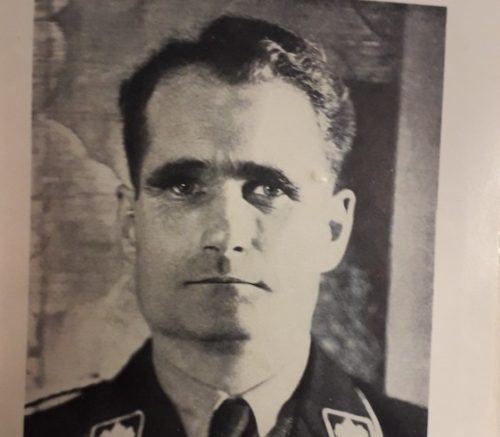Imagine if at the height of the Second World War psychiatrists had the opportunity to pluck one of the Nazi leaders out of Germany and subject him to years of close observation. Imagine what we could have learned about the psychology of the Nazi regime.
This is precisely what happened in 1941 when the Deputy Führer Rudolf Hess, the number two man to Adolf Hitler, piloted a Luftwaffe plane across the English Channel and parachuted out over Scotland. He came, he said, to make peace. He was convinced that there was a significant group of British people — including members of the royal family — who would be open to his proposals.
Over the course of four years of captivity, a team of British doctors were able to observe Hess closely. This book is a summary of their findings including, at the end, the reports they made to the Nuremberg International Tribunal where Hess was tried.
I was fascinated to learn of Hess’ obsession with hypnosis — believing that many leading figures (including the German field marshal who surrendered at Stalingrad, or the King of Italy, or even Winston Churchill) had been hypnotised, almost certainly by the Jews. He was also a vigorous opponent of modern medicine, and upon his arrival in Britain was found to have stuffed his pockets with many samples of vitamins and homeopathic and other “alternative” medicines. These included “an elixir brought by Dr. Sven Hedin, the Swedish explorer, from a Thibetan [sic] Lamasery, which he had been told was a specific cure for gall bladder troubles.”
Hess was an early member of the Nazi Party, and spent two decades at its head, making this examination of his mind an interesting one for anyone keen to learn about the psychopathology of National Socialism.
